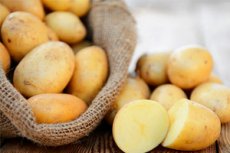
许多人担心食物中的化学残留物、污染物或微塑料。然而,鲜为人知的是,许多食物中也含有纯天然的毒素。这些毒素通常是植物用来保护自己免受昆虫或微生物等捕食者侵害的化合物。例如,豆类和土豆中就含有此类物质,它们可能构成潜在的健康风险。
然而,根据德国联邦风险评估研究所(BfR)最近开展的一项代表性调查,只有略低于一半(47%)的受访者了解植物毒素的存在。BfR消费者监测报告关于天然植物毒素的特别版也显示,27%的人担心这种风险。
与此同时,63% 和 62% 的受访者担心食品中的残留物(例如来自植物保护产品)和污染物(即非故意添加到食品中的物质(例如重金属)。
德国风险评估研究所所长安德烈亚斯·亨塞尔教授表示:“调查结果清楚地表明,天然来源的风险往往被低估,而合成来源的风险往往被高估。”
34% 的人经常食用生植物性食物,45% 的人有时或很少食用,19% 的人很少或根本不食用生植物性食物。
您知道哪些食物含有天然植物毒素?如果直接问这个问题,不做任何选择,首先提到的是土豆(15%),然后是西红柿、生豆(各占9%)和蘑菇(5%)。
超过一半的受访者(53%)认为他们对食物中的植物毒素了解甚少,而只有 8% 的人认为他们了解得很多。
残留物是指食品生产过程中所用物质的剩余量。例如,即使正确使用植物保护产品,水果、蔬菜或谷物中也可能残留残留物。
另一方面,污染物是指意外进入食物的有害物质。它们可能自然存在于环境中,也可能在将原材料加工成食品的过程中产生,或者由于人类活动而释放到环境中。污染物之所以有害,是因为它们在某些情况下可能对健康有害。
该研究还强调了“发霉食物”这一相关主题。这方面显然也需要加强宣传教育。即使是少量的霉菌毒素也可能对人类和动物的健康造成危害。例如,发霉的果酱应该彻底扔掉。
然而,25%的受访者表示,他们只会去除发霉的部分。如果浆果发霉,受影响的果实及其周围的果实也不应该食用。只有60%的人遵守这条规定。

